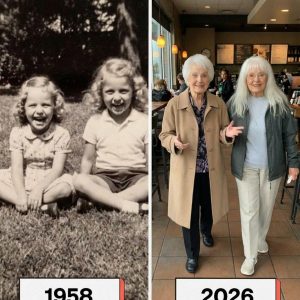On the morning of my wedding, I felt certain life had finally steadied. Guests filled their seats, music drifted softly across the venue, and Daniel stood beside me with a warmth that felt like home. After years of choosing the wrong people, I finally felt seen and cherished. I breathed in, ready to step confidently into the commitment we’d spent years building — until his mother entered the room and the energy shifted like a sudden breeze.
Margaret had never raised her voice or openly disapproved, but her talent for subtle criticism was something I knew well. So when she and several of her relatives appeared wearing white dresses that unmistakably echoed bridal gowns, the room froze. Conversations stopped, eyes widened, and Daniel tensed beside me, ready to intervene. But after years of quietly swallowing discomfort, I felt something unexpected — a calm certainty that this moment belonged to me, not to her.
Instead of reacting with anger, I walked to the microphone and thanked our guests for joining us, adding — with a playful smile — that even with so many white dresses present, everyone would still know exactly who the bride was today. Laughter rippled through the crowd, applause followed, and the tension evaporated like steam. The ceremony unfolded beautifully, full of joy and ease, while the white-clad group faded into the background, suddenly unsure of the spotlight they’d tried to claim.
What surprised me most wasn’t the disruption — it was how empowering it felt to respond with grace instead of hurt. Months later, Margaret asked to speak privately and offered a heartfelt apology, admitting she had misjudged me and held onto fears she never voiced. We didn’t become inseparable, but respect slowly replaced resentment. That day taught me something lasting: boundaries don’t always require confrontation — sometimes they just need confidence. And that single moment changed not only a wedding, but an entire family dynamic for the better.





